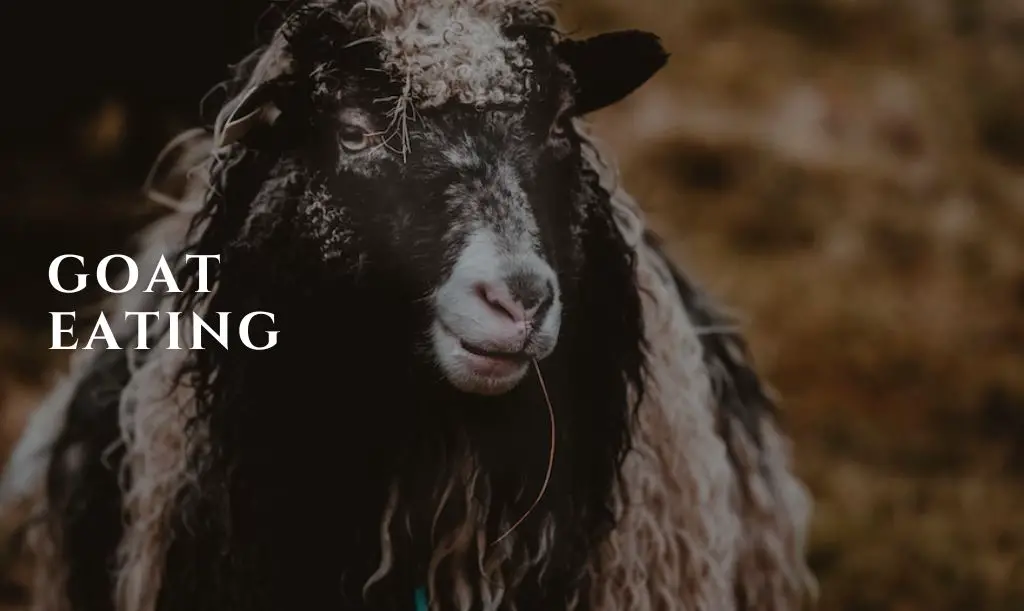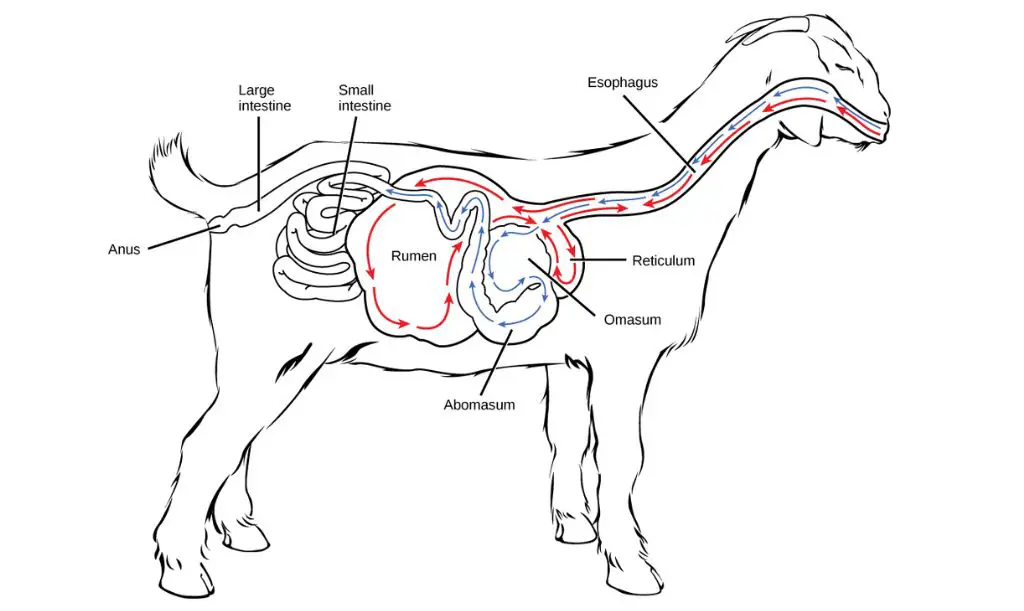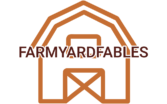If you have goats, you know that hay holds a special place in their hearts (and tummies!). Hay is essentially dried grass or other plants that are cut and harvested for feeding livestock.
It serves as an essential component of a goat’s diet, providing them with the necessary nutrition to thrive.
So you might be wondering: Why is hay such a crucial part of their dietary repertoire?
Well, goats require high-fiber diets to maintain optimal health.
This is where hay comes into play, as it contains an abundance of fiber that aids digestion.
Additionally, hay provides goats with essential vitamins and minerals they need for growth, reproduction, and overall well-being.
But can goats eat too much hay?
Yes, goats can eat too much hay, and it can lead to health problems. Overconsumption of hay can cause issues like obesity, digestive upset, and even impaction. It’s important to provide goats with the appropriate amount of hay based on their size, age, and nutritional needs.
My goats love hay and therefore, I have to closely watch the amount that they have access to so they don’t end up overeating.
In this article, we will delve deeper into the world of goats’ dietary habits and explore the impact excessive hay consumption can have on our beloved goats.
Let’s begin!
Key Takeaways
- Goats can eat too much hay, which can lead to various health problems.
- Overconsumption of hay can cause obesity in goats.
- Excessive hay intake can result in digestive issues such as bloating and diarrhea.
- Hay impaction is a serious concern when goats consume excessive amounts of dry hay without enough water or other roughage.
- Providing the appropriate amount of hay based on a goat’s size, age, and nutritional needs is crucial.
- Monitoring a goat’s hay intake and ensuring access to fresh water and other dietary components is important for their overall health.
- Consult with a veterinarian or animal nutritionist for specific guidelines on hay portion sizes for goats.
What To Feed Goats
Here’s a comprehensive table showing what you can and cannot feed goats:
[table id=1 /]
Please note that not all plants that goats can’t eat are included in this list, and the same applies for plants they can eat. Also, the toxicity level of some plants can vary, and some are only harmful in large quantities or certain parts of the plant. Always consult with a vet or a goat expert if you are unsure about a particular plant or food.
Can Goats Eat Too Much Hay?

Hay is a staple in a goat’s diet as it provides essential fiber, nutrients, and roughage necessary for their overall well-being.
However, there is a delicate balance between providing adequate hay and overindulging these rambunctious ruminants.
When it comes to hay consumption, general guidelines suggest that goats should consume about 2-4% of their body weight in dry matter each day.
This means that a 100-pound goat should ideally consume between 2-4 pounds of hay daily.
However, it’s crucial to note that this can vary depending on factors such as the goat’s age, breed, activity level, and overall health.
The Hidden Dangers: Potential Issues with Excessive Hay Consumption
While goats relish the taste of fresh hay, excessive consumption can lead to various problems. One primary concern is the imbalance it creates in their diet.
Although hay is an excellent source of fiber and energy for goats, consuming an excess amount can cause them to neglect other important components of their diet.
Furthermore, overeating hay may lead to digestive disorders such as impaction or bloating.
Goats naturally have fermentative digestive systems designed to break down fibrous materials like hay efficiently.
However, when they consume too much at once or fail to adequately chew their food due to greediness or improper tooth alignment, it can result in blockages within the digestive tract.
This obstruction prevents proper digestion and absorption of nutrients while causing discomfort and potential health complications.
In addition to digestive issues, overindulging in excessive amounts of hay can also lead to weight gain or obesity in goats.
Just like humans who overeat high-calorie foods, goats can also pack on the pounds if their hay intake exceeds their energy expenditure.
This extra weight puts strain on their joints, increases the risk of metabolic disorders, and may even impact their overall mobility and wellbeing.
That’s why as a goat owner, I always try to strike a balance between providing sufficient hay as a dietary necessity while ensuring that overconsumption does not lead to negative health consequences.
Understanding the Nutritional Needs of Goats
Before delving into the intricacies of hay consumption for goats, it is essential to have a basic understanding of their nutritional requirements.
Goats, being ruminant animals, have a unique digestive system that allows them to extract nutrients from fibrous plant materials such as hay.
However, not all hay is created equal when it comes to meeting their dietary needs.
The nutritional composition of hay varies depending on factors such as the type of grass or legume used and its stage of maturity during harvesting.
One crucial aspect of goat nutrition is protein content.
Protein plays a vital role in various bodily functions, including growth, maintenance, and reproduction.
Different types of hay offer varying levels of protein; legume hays like alfalfa tend to have higher protein content compared to grass hays like timothy or orchard grass.
Protein Content in Different Types of Hay
When we talk about protein content in hay, we refer to crude protein—the collective term for all forms of nitrogen present in the material.
Legume hays typically contain around 15-20% crude protein and are considered excellent sources for meeting goats’ protein requirements.
On the other hand, grass hays generally contain between 6-12% crude protein.
This disparity in protein content between legume and grass hays makes it important to consider a goat’s specific needs when choosing which type of hay to provide.
Growing kids or lactating does have higher demands for dietary proteins than adult wethers or bucks at maintenance level.
In these cases, offering legume hay alongside pasture grazing or lower-protein grass hays can help ensure adequate intake.
Fiber Content and Its Importance for Digestion
An essential component found in all types of hay is fiber. Fiber is not a nutrient that goats can directly digest, but it plays a crucial role in maintaining their digestive health.
The fiber present in hay is primarily made up of two types: cellulose and hemicellulose.
Goats possess specialized digestive enzymes and gut microorganisms that allow them to break down fiber through fermentation.
This process takes place in the goat’s rumen, where beneficial bacteria break down complex carbohydrates into simpler compounds that the goat can absorb.
The slow fermentation of fiber-rich feedstuffs promotes healthy rumen function and helps maintain an optimal pH balance within the digestive system.
Vitamins and Minerals Found in Hay
In addition to protein and fiber, hay also provides goats with essential vitamins and minerals necessary for their overall well-being.
While the specific nutrient composition varies depending on factors like soil fertility and hay quality, there are some common vitamins and minerals found in most hays.
Vitamin A is essential for vision, immunity, and reproductive health in goats.
Hay, especially high-quality leafy varieties like alfalfa, often contains significant amounts of this vitamin. Additionally, hay serves as a source of fat-soluble vitamins like E and K.
In terms of minerals, hay contains varying levels of calcium (Ca), phosphorus (P), magnesium (Mg), potassium (K), sulfur (S), copper (Cu), zinc (Zn), manganese (Mn), selenium (Se), among others.
While these minerals are present in smaller quantities compared to concentrated feeds or mineral supplements, they contribute to meeting goats’ dietary needs when consumed consistently over time.
The Dangers of Overeating Hay for Goats

So we’ve already established that goats can eat too much hay, even when they shouldn’t! So next, let’s take a look at some of the potential dangers of this behavior.
Digestive Problems Caused by Excessive Fiber Intake
When it comes to goats and their hay consumption, moderation is key. While hay is an essential part of their diet, eating too much can lead to various digestive problems.
One of the primary concerns associated with overeating hay is excessive fiber intake.
Goats have complex digestive systems designed to break down fibrous plant material efficiently.
However, if they consume an excessive amount of fiber from hay, it can overwhelm their digestive system and disrupt the delicate balance.
Impaction and Bloating Risks
One common issue that arises from overeating hay is the risk of impaction and bloating.
Goats are ruminant animals, meaning they have a four-chambered stomach specifically adapted for digesting fibrous materials like hay.
However, when goats consume an excessive amount of hay without adequate access to water or other sources of moisture, it can lead to impaction in their digestive tract.
Impaction occurs when the ingested fiber becomes compacted and forms a blockage in the goat’s gastrointestinal system.
This blockage prevents proper movement of food through their digestive tract and can result in discomfort and severe health complications if left untreated.
Additionally, overeating high-fiber foods like hay can cause bloating in goats.
Bloating happens when gas builds up in the rumen due to fermentation processes being disrupted by an imbalanced diet or rapid consumption of large amounts of dry feed like hay.
Diarrhea or Constipation Issues
Another danger associated with overconsumption of hay is its potential impact on a goat’s bowel movements.
If a goat eats too much low-quality or excessively dry hay without enough roughage (fiber-rich materials), it may experience diarrhea or loose stool consistency due to inadequate digestion and absorption of nutrients.
On the other hand, if a goat consumes an excessive amount of hay with insufficient water intake, it can lead to constipation.
This occurs because the lack of hydration makes it difficult for the digestive system to move dry, fibrous material through the gastrointestinal tract.
To ensure a goat’s digestive health and prevent these issues, it is essential to provide a balanced diet that includes appropriate amounts of hay, access to fresh water at all times, and supplementation with other sources of nutrition such as grains or fresh forage.
Monitoring their hay intake and being aware of any changes in their bowel movements or behavior can help identify potential problems early on and allow for prompt intervention.
Signs That a Goat Is Eating Too Much Hay
I can tell you from experience that there may be times when your goat eats too much hay without you knowing it.
That’s why it is important to be aware of the signs so you can prevent it.
1. Behavioral Changes Indicating Overconsumption
When a goat is eating too much hay, there are noticeable behavioral changes that can serve as red flags.
When my goats were eating too much hay, I noticed that they had a decreased appetite for other essential foods.
Goats are natural grazers and their diet should include a variety of vegetation to ensure balanced nutrition.
However, when they consume excessive amounts of hay, they may start neglecting other food sources such as fresh pasture or concentrates.
This change in eating behavior can lead to an imbalance in their overall diet and negatively impact their health.
Another behavioral change to watch out for is excessive weight gain or loss.
While it might seem counterintuitive that goats can experience both ends of the weight spectrum from eating too much hay, it’s important to understand the underlying factors involved.
If goats have unlimited access to an abundance of high-quality hay and no restrictions on intake, some individuals may overindulge and pack on extra pounds.
On the other hand, goats with limited access to food may resort to consuming large quantities of hay when available, leading to rapid weight loss due to compensatory overeating.
2.Physical Symptoms Suggesting Excessive Hay Intake
The physical symptoms exhibited by goats who have eaten too much hay can also provide valuable insights into their dietary habits.
One indicator of excessive hay consumption is bloating or a distended abdomen.
When goats consume large amounts of fiber-rich hay without proper moderation, their digestive system can struggle to process it efficiently.
This can result in gas accumulation within the rumen—a fermentation chamber within their stomach—and cause discomfort for the goat.
One thing that works for me is closely monitoring stool consistency can help identify if a goat has consumed an excess amount of hay.
Loose or abnormal stool consistency may indicate that the digestive system is being overwhelmed by too much fiber intake from the excess hay consumption.
In some cases, goats may experience diarrhea due to the inability of their system to adequately break down and absorb the excess fiber.
Conversely, constipation can occur when the digestive tract becomes impacted with undigested hay particles, causing discomfort and potential health issues for the goat.
Overall, paying attention to both behavioral changes and physical symptoms can help goat owners identify when their animals are consuming too much hay.
By recognizing these signs early on, adjustments can be made to prevent potential health complications and maintain a well-balanced diet for our caprine friends.
How to prevent goats from overeating hay
Managing access to unlimited amounts
If you notice that your goats have a tendency to gobble up hay like there’s no tomorrow, it’s important to manage their access to unlimited amounts.
One effective method is by using a slow feeder or a hay net.
These devices slow down the rate at which the goats can consume the hay, preventing them from scarfing it all down in one sitting.
Slow feeders have small openings that force the goats to work for each mouthful, mimicking their natural grazing behavior and promoting healthier digestion.
Another technique is portion control. Rather than leaving a constant supply of hay available, consider rationing it out in limited quantities throughout the day.
This allows the goats to eat their fill without going overboard.
Additionally, providing alternative sources of nutrition such as pasture grazing or offering them other forage options can help divert their attention from excessive hay consumption.
Can Goats Eat Too Much Hay (Conclusion)
While hay is an essential component of a goat’s diet, moderation is key when it comes to consumption.
Goats can indeed eat too much hay, leading to potential digestive issues and health problems.
By understanding the nutritional needs of goats and implementing proper management techniques, such as using slow feeders or rationing portions, you can prevent overeating and ensure your goats’ well-being.
By keeping a watchful eye on your goats’ behavior and making necessary adjustments to their feeding routine, you can strike a balance that promotes healthy digestion while still satisfying their voracious appetites for this fibrous delight.
Remember that proper nutrition plays an integral role in ensuring your furry friends lead happy and fulfilling lives on the farm!
Related Article:
- https://farmyardfables.com/can-goats-eat-cattle-cubes/
- https://farmyardfables.com/do-goats-eat-briars/
FAQs
Question: Can you overfeed a goat hay?
Yes, it is possible to overfeed a goat hay. Overconsumption of hay can lead to health issues such as obesity and digestive problems. It’s important to provide goats with the appropriate amount of hay based on their size, age, and nutritional needs to prevent overfeeding.
Question: Can goats eat hay everyday?
Yes, goats can eat hay every day. Hay is an essential part of a goat’s diet, providing them with necessary fiber and nutrients. However, it should be provided in appropriate quantities based on the goat’s size, age, and activity level to maintain a balanced diet.
Question: How much hay will a goat eat per day?
The amount of hay a goat will eat per day varies depending on factors such as the goat’s size, age, and nutritional requirements. On average, a mature goat may consume around 2-4 pounds of hay per day. It’s important to monitor their intake and adjust the amount accordingly to prevent overfeeding or underfeeding. Consulting with a veterinarian or animal nutritionist is recommended for specific guidelines based on your goat’s needs.
- Do Goats Sound Like Humans? Find Out Here! - 22 December 2023
- Vegetable Oil For Constipated Goat (Comprehensive Guide) - 22 December 2023
- Is Bermuda Hay Good For Goats? (Solved!) - 21 December 2023


